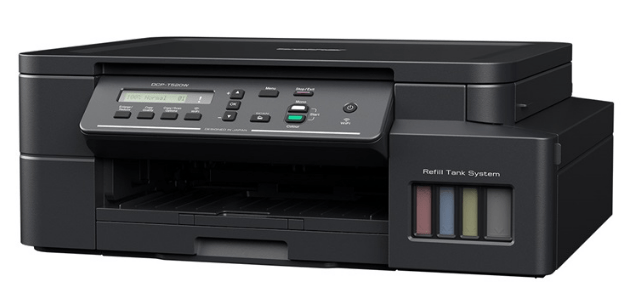Managing billing and tax compliance is a critical task for any business, especially in India, where the Goods and Services Tax (GST) has streamlined the tax system. However, complying with GST rules and regulations can be complex without the right tools. This is where GST billing software becomes essential. It simplifies the entire process of invoicing, tax calculation, and record management, helping businesses operate more efficiently.
In this blog, we’ll provide a comprehensive guide to GST billing software, discuss its features, benefits, and offer tips on selecting the right software for your business.
What is GST Billing Software?
GST billing software is an application that enables businesses to generate GST-compliant invoices, calculate taxes automatically, and manage all financial transactions related to sales and purchases. This software ensures that the business adheres to the GST regulations set by the government while simplifying day-to-day billing tasks.
Why Do Businesses Need GST Billing Software?
With manual billing, there’s always the risk of errors, especially when dealing with tax calculations. The introduction of GST has added more layers of complexity, requiring businesses to maintain accurate records and file returns regularly. GST billing software addresses these issues by:
- Automating Invoicing: It helps create error-free, GST-compliant invoices in seconds.
- Improving Accuracy: By automating tax calculations, it minimizes the risk of mistakes.
- Time Efficiency: The software reduces the time spent on billing and tax-related activities.
- Better Compliance: It ensures adherence to all GST rules, helping businesses avoid penalties.
Key Features of GST Billing Software
When choosing billing software, it’s important to understand the key features that make it an invaluable tool for your business. Here are some of the top features:
1. GST-Compliant Invoices
The software generates invoices that meet the requirements of the GST regulations. This includes mandatory information such as the seller’s GSTIN, HSN codes for products, tax breakdowns, and buyer’s details.
2. Automated Tax Calculations
With GST billing software, the system automatically applies the correct GST rate, whether it’s CGST, SGST, or IGST, based on the location of the buyer and seller. This eliminates the hassle of manual calculations.
3. Multiple Payment Modes
The software supports multiple payment options, such as cash, card, and online transfers. This allows businesses to easily track and manage payments, ensuring transparency in all transactions.
4. Inventory Management Integration
For businesses that manage large inventories, GST billing software often comes with inventory management features. This helps track stock levels, reorder points, and the movement of goods, making overall business operations more efficient.
5. E-Way Bill Generation
For businesses that need to transport goods across states, GST billing software often integrates with the e-way bill system. This helps generate e-way bills quickly, ensuring compliance with transportation rules under GST.
Benefits of Using GST Billing Software
Using GST billing software offers numerous advantages for businesses of all sizes. Let’s dive into the key benefits that make this software a must-have for businesses:
1. Efficient GST Filing
One of the most time-consuming tasks for any business is filing GST returns. GST billing software simplifies this process by automatically generating the required reports, such as GSTR-1 and GSTR-3B, which can be uploaded to the GST portal.
2. Minimized Errors
Manual billing can lead to errors in tax calculations or missing information on invoices, leading to penalties. GST billing software eliminates these errors by ensuring all invoices are GST-compliant and tax calculations are accurate.
3. Faster Invoicing
With automation, businesses can generate invoices quickly, saving time that would otherwise be spent on manual invoicing. This speeds up the billing process, allowing businesses to focus on core operations.
4. Enhanced Record Keeping
GST billing software keeps a record of all transactions in an organized manner, making it easier for businesses to track sales, purchases, and payments. This data is easily accessible for audits and filing returns.
5. Improved Cash Flow
Accurate and timely invoicing means quicker payments. By automating invoicing and minimizing delays, GST billing software helps businesses maintain a healthy cash flow, improving their financial stability.
How GST Billing Software Streamlines Business Processes
Apart from automating the billing process, GST billing software offers several other features that streamline business operations, helping companies grow and scale efficiently.
1. Seamless Integration with Accounting Systems
Many billing software solutions integrate with popular accounting platforms, making it easy to synchronize billing data with your overall financial records. This saves time and effort by eliminating the need for manual data entry and reduces the risk of discrepancies.
2. Accurate Stock Management
For businesses dealing with physical products, GST billing software often comes with inventory tracking features. This helps manage stock levels, track goods movement, and optimize purchase decisions. By keeping inventory and billing in sync, businesses can avoid stock shortages and overstocking.
3. Comprehensive Reporting
With detailed reports on sales, tax liabilities, and inventory, GST billing software provides businesses with valuable insights. These reports can help you identify trends, optimize operations, and make informed decisions about pricing, product offerings, and customer management.
4. E-Invoicing Support
The government has made e-invoicing mandatory for certain businesses under the GST regime. GST billing software supports e-invoicing, helping businesses generate and validate electronic invoices as required by law.
Choosing the Right GST Billing Software
Selecting the right GST billing software can have a significant impact on your business. Here are some factors to consider when choosing the best software for your needs:
1. Ease of Use
Ensure that the software is user-friendly and can be easily adopted by your team. A complex system can lead to more confusion and errors, which defeats the purpose of using software.
2. Scalability
As your business grows, your billing needs will become more complex. Choose billing software that can scale with your business, accommodating more users, transactions, and features.
3. Customization Options
Every business has unique invoicing requirements. Make sure the software allows you to customize invoice formats, add your company logo, and adjust other elements to match your branding.
4. Cost
Consider the pricing plans and whether the software provides value for the features offered. While it’s important to choose software within your budget, don’t compromise on essential features just to save costs.
Final Thoughts
Incorporating GST billing software into your business operations is not just about compliance, but also about improving efficiency and reducing errors. With features like automated invoicing, accurate tax calculations, and seamless integration with other systems, it can save time, reduce manual efforts, and ensure your business stays GST-compliant.
Whether you’re running a small business or managing a large enterprise, GST billing software can greatly enhance your billing process and help you manage your business finances more effectively. By choosing the right software, you can focus on growing your business without getting bogged down by administrative tasks and compliance worries.
In today’s digital world, businesses need tools that simplify operations. GST billing software is one such tool that ensures your business not only meets its tax obligations but also operates efficiently and effectively.
Read More:- Exploring the Latest Trends in Action Cameras: What’s New in 2024



